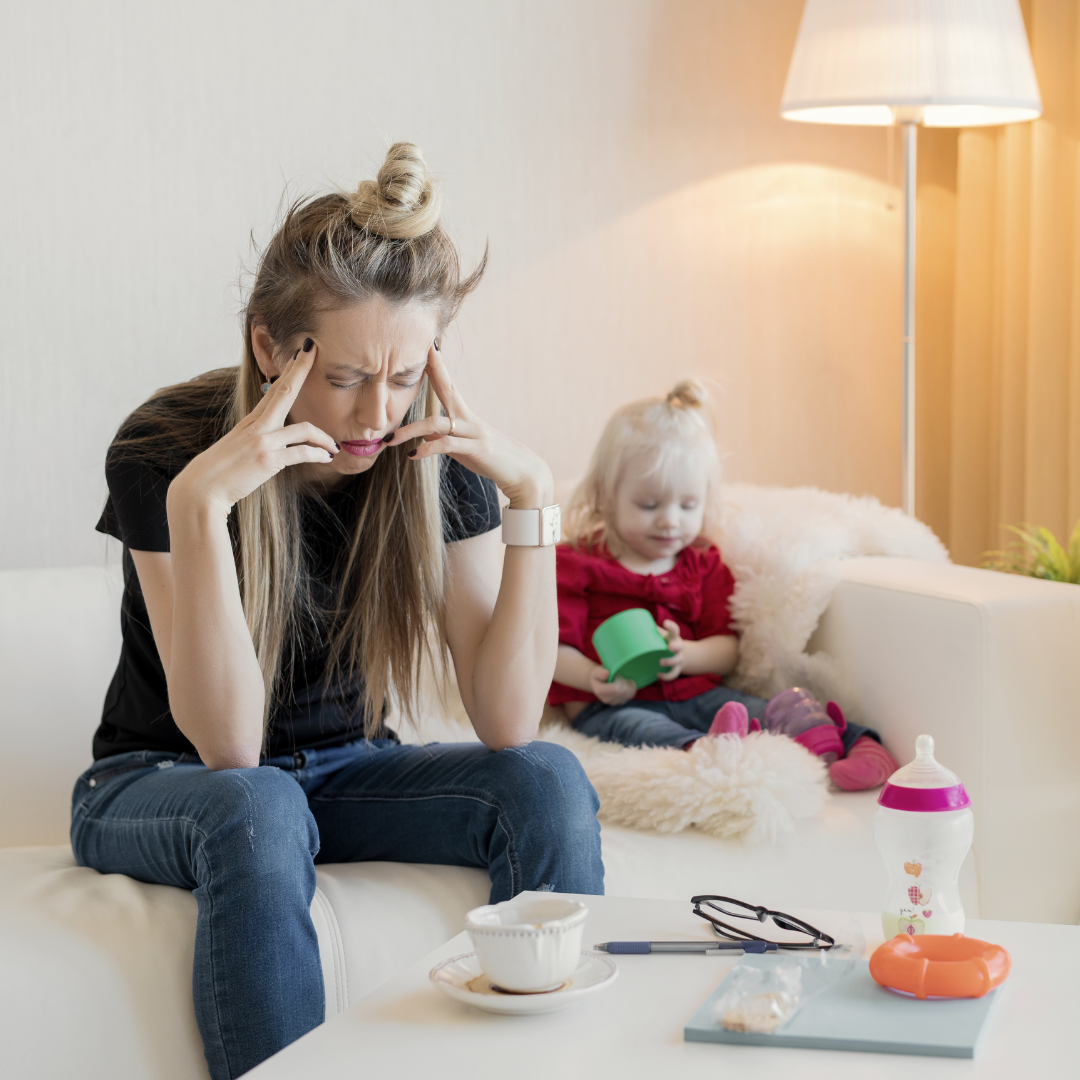What Is Secondary Infertility and Why Does It Happen?
What Is Secondary Infertility and Why Does It Happen?
You thought you’d be holding your second baby by now. You’ve given birth before—so why does getting pregnant feel so much harder this time?
If you’re exhausted from tracking ovulation, holding back tears around other moms, or blaming yourself for not “getting it right” again, this is for you.
Because secondary infertility doesn’t just mess with your timeline. It messes with your trust in your body, your sense of identity as a mother, and your belief that the life you envisioned is still possible.
Let’s get something straight: this struggle is more common than you think—and it’s not the end of your story.
What Is Secondary Infertility?
You already have a child. Maybe pregnancy came easily the first time—or at least felt straightforward enough. So when you decided it was time for another, you figured your body would cooperate just like before.
But now you're trying for a second baby and not getting pregnant.
You're googling "what is secondary infertility," wondering what changed, and if something might be wrong with you.
Let’s break it down. The definition of secondary infertility is the inability to conceive or carry a pregnancy to term after previously giving birth to a biological child. It’s just as real—and just as valid—as primary infertility, yet it often goes overlooked.
Women in this situation often wonder:
“How long do you stay fertile after giving birth?”
“Why am I struggling to get pregnant with a second child?”
“Is something wrong with my body now?”
It’s a uniquely disorienting experience. Because you’ve done this once before, there's often a misplaced pressure to “get over it” quickly or figure it out alone. The outside world doesn’t always offer much sympathy, and even healthcare providers sometimes dismiss the struggle if you already have a child.
But infertility after your first child is a real thing—and so is the grief, shame, and anxiety that can come with it.
You’re Not Making This Up
Secondary infertility is far more common than people realize. According to the National Institutes of Health, it accounts for up to 50% of all infertility cases. Yet because it’s rarely talked about, many women feel isolated and misunderstood—especially if well-meaning friends or relatives keep reminding you to “just be grateful” for the child you already have.
You can love your child and still long for another. Both truths can exist at the same time.
'Unexplained' Doesn’t Mean Unfixable
Maybe you’ve received a diagnosis like unexplained secondary infertility. You’ve had the bloodwork, the ultrasounds, the sperm analysis. And everything looks “fine.” But you’re still having trouble conceiving your second child.
This can be maddening. But in my work, this kind of diagnosis is often the doorway to deeper healing.
Because when there’s no obvious medical reason, it’s often a sign to look below the surface—to explore the role of emotional stress, subconscious beliefs, trauma patterns, or nervous system dysregulation that’s quietly affecting your ability to conceive.
Your Fertility Timeline Isn’t Broken
If you're wondering, how long am I fertile after giving birth?, know this: fertility of course doesn't shut off after you become a mom, but postpartum healing is often more complex than we’re taught.
Hormones, nutrient depletion, sleep deprivation, unresolved birth trauma—it all adds up. And it can affect your ability to conceive again in ways you may not realize.
Why Can't I Get Pregnant Again?
This is one of the most painful, disorienting questions a woman can ask herself.
You may have found yourself Googling things like:
“Why is it so hard to get pregnant?”
“Is it harder to get pregnant the second time?”
“Why haven’t I gotten pregnant?”
“What causes secondary infertility?”
Or even, “Can you get pregnant without a period for 2 years?”
Even if you’ve been trying to conceive for 2 years and still not pregnant, you are not alone—and you’re not doing anything wrong. But your body may be trying to tell you something.
Your Nervous System Is Part of the Picture
One of the most overlooked contributors to secondary infertility causes is a woman’s nervous system state.
When you're constantly worried about ovulation timing, fertility windows, supplements, losses, or your biological clock, your body can’t tell the difference between emotional stress and a physical threat. It goes into survival mode.
And a body stuck in survival mode doesn’t prioritize reproduction. Because reproduction requires safety. Openness. Trust.
This is where so many women find themselves: exhausted, anxious, over-efforting, and secretly afraid it might never happen again. You might be feeling like you’re doing everything right—but inside, your nervous system is saying: “No, not yet. It’s not safe.”
That’s not your fault. It’s your invitation to soften.
A Quick Note from Someone Who's Been There
I’ve worked with so many women walking this exact path. One client came to me after two years of trying for a second child, multiple losses, and a “nothing’s wrong” workup from her doctor.
She felt broken. Panicked. Over it.
What shifted wasn’t just what she was doing—it was what she was feeling. She stopped micromanaging and doubting her body. She stopped second-guessing her choices and what they meant. And with support, she started regulating her nervous system, connecting with her body, and creating space for something new to unfold.
Within months, she was pregnant. And more importantly—she was ready.
How to Start Healing Now
You don’t have to wait until you hit a breaking point—or until you “deserve” help—to start healing.
Here are three powerful starting points you can use today:
1. Create a Daily Nervous System Ritual
Even 5 minutes a day of breathwork, self-touch, or grounding movement can help shift your body from stress mode into a space where conception is more possible.
2. Ask the Deeper Questions
What am I afraid might happen if I never get pregnant again?
What am I making it mean about me?
What does my body need to feel safe and open again?
These questions unlock new awareness that can begin shifting everything in the direction you desire.
3. Stop Blaming Yourself
This is not your fault. Secondary infertility is not a punishment, a sign you’re unworthy or that something’s wrong with you. It’s an invitation to meet your body with more love than ever before—and that alone can begin to change things.
FAQ: Answers You’ve Been Searching For
Is it harder to get pregnant the second time?
Not always—but when it is, it’s not always for the reasons you think. Emotional burnout, hormone shifts, or unresolved birth or childhood trauma can all play a role. It’s not about age or worth—it’s about what your body needs to feel safe.
When should I stop trying?
That’s a deeply personal decision. But before you stop, ask yourself: have I really tried supporting my body and nervous system the way it needs to be supported? Will I be satisfied that I did what I could, or could I have gone deeper?
You’re Not Failing—You’re Awakening
This season of your life might feel like a detour. A heartbreak. A big cosmic “why not me?”
But I want you to know—this experience is shaping the mother you’re becoming. More intuitive. More grounded. More powerful.
You don’t need to hustle harder. You need to come home to yourself.
Ready to Reclaim Your Body and Support Conception Now?
You don’t have to keep waiting or guessing or trying everything under the sun. You can start now—on your own terms, with proven steps that get results.
Conception Accelerator Essentials is my self-paced online course designed to help you support your nervous system and create the inner environment your body needs to conceive. You’ll learn simple yet powerful practices to regulate stress, build trust with your body, and shift from force into flow.
Because conception doesn’t require control—it requires connection. Let’s get you back in your power.







